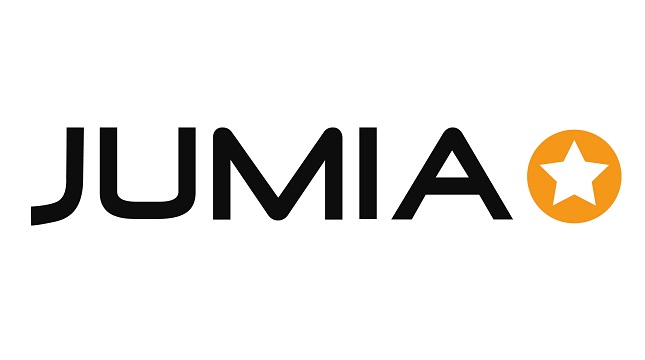E-Business
Sophos Identifies Top Ransomware Families in Africa

Cyber security vendor Sophos has identified the top ransomware families that affected Africa in 2017.
According to Sophos, the Ceber ransomware accounted for 80% of attacks in Africa, followed by WannaCry (17%), and others like Jaff (1%), Locky (1%) and Petya (0.5%).
One of the most active kinds of ransomware out there, Cerber encrypts the files of infected users and demands money in exchange for enabling access to their files. It works even if a user is not connected to the Internet, so they can’t stop it by unplugging their PC.
Cerber, sold as a ransomware kit on the Dark Web, remains a dangerous threat, says Sophos, adding the creators of Cerber continuously update the code and charge a percentage of the ransom that the “middle-men” attackers receive from victims.
Regular new features make Cerber not only an effective attack tool, but perennially available to cyber criminals, the cyber security firm notes.
“This Dark Web business model is unfortunately working and, similar to a legitimate company, is likely funding the ongoing development of Cerber. We can assume the profits are motivating the authors to maintain the code,” says Dorka Palotay, SophosLabs security researcher and contributor to the ransomware analysis in the SophosLabs 2018 Malware Forecast.
The WannaCry ransomware attack was a May 2017 worldwide cyber attack by the WannaCry ransomware cryptoworm, which targeted computers running the Microsoft Windows operating system by encrypting data and demanding ransom payments in the Bitcoin crypto-currency.
“Looking at the whole world, WannaCry was responsible for 45.3% of the ransomware attacks, while in Africa this value is only 17%,” Palotay says.
“In Africa, clearly Cerber was the biggest ransomware threat this year, since 80% of the ransomware lookups was caused by Cerber, while this number is only 44.2% if we look at the whole world. Regarding the smaller families, the results are very similar.”
The SophosLabs 2018 Malware Forecast report recaps ransomware and other cyber security trends based on data collected from Sophos customer computers worldwide from 1 April to 3 October 2017.
One key finding shows that while ransomware predominately attacked Windows systems in the last six months, Android, Linux and MacOS platforms were not immune.
“Ransomware has become platform-agnostic. Ransomware mostly targets Windows computers, but this year, SophosLabs saw an increased amount of crypto-attacks on different devices and operating systems used by our customers worldwide,” says Palotay.
She notes that for the first time Sophos saw ransomware with worm-like characteristics, which contributed to the rapid expansion of WannaCry.
“This ransomware took advantage of a known Windows vulnerability to infect and spread to computers, making it hard to control.
“Even though our customers are protected against it and WannaCry has tapered off, we still see the threat because of its inherent nature to keep scanning and attacking computers. We’re expecting cyber criminals to build upon this ability to replicate as seen in WannaCry and NotPetya, and this is already evident with Bad Rabbit ransomware, which shows many similarities to NotPetya.”
E-Business
Firm Enhances its Security Awareness Platform with SCORM and PDF Support

Kaspersky has introduced an update to its Automated Security Awareness Platform, adding full support for PDF and SCORM (Sharable Content Object Reference Model) – the industry-standard protocol for deploying and managing e-learning content.

The enhancement enables organisations to build fully customised cybersecurity training programmes that reflect their infrastructure, risk profile, and internal policies, while continuing to benefit from Kaspersky’s expert-driven security content and phishing simulations.
According to the Kaspersky report titled “Redefining the Human Factor in Cybersecurity”, employees responding to phishing attacks was one of the main causes of cyber incidents in companies worldwide, accounting for 21% of cases among other reasons.
At the same time, additional Kaspersky research reveals that social engineering attacks are predicted to increase more than any other type in the nearest future, with 87% of respondents believing that social engineering attacks will become even more effective due to the use of AI tools.
The new Kaspersky Automated Security Awareness Platform (Kaspersky ASAP) update directly addresses several persistent challenges such as reducing the number of human-related incidents, cutting time spent on managing training programmes, decreasing regulatory and compliance risks, and minimising potential legal or reputational damage stemming from cybersecurity breaches.
With the new SCORM support, the platform becomes even more flexible: companies can now upload, track, and manage their own SCORM-based learning materials directly within the system. In addition, companies can accelerate their programmes by using easier-to-create PDF-formats.
This allows organisations to tailor training to their specific technology stacks and emerging threats targeting their industry or region. Businesses that have already invested in third-party SCORM courses or internal learning development can now seamlessly reuse their existing modules, protecting their prior investments while strengthening their cybersecurity posture.
The combination of Kaspersky’s embedded content built on real cases uncovered by the company’s world-class experts with customers’ PDF materials or SCORM modules enables a true best-of-breed approach to human risk management.
Organisations can supplement Kaspersky’s up-to-date cyberattack scenarios with internal policies, unique workflows, and industry-specific lessons, ensuring training resonates with employees and reflects real operational challenges.
“Human behaviour remains one of the most unpredictable elements in cybersecurity and also one of the easiest for attackers to exploit. By adding SCORM support to Kaspersky Automated Security Awareness Platform, we’re giving organisations the flexibility to build training programmes that truly match their internal realities.
“Combined with Kaspersky’s expert-driven content and real-world attack data, this update empowers companies to create more adaptive, relevant, and impactful awareness programmes than ever before,” comments Svetlana Kalashnikova, Security Awareness expert at Kaspersky.
E-Business
NDPC, 60 DPAs Collaborate on Enforcing Privacy Rights in the Use of Al

Nigeria Data Protection Commission (NDPC) has joined sixty (60) other Data Protection Authorities (DPAs) in endorsing the “Joint Statement on Al-Generated Imagery and the Protection of Privacy.”

NDPC
The Joint Statement was coordinated by the International Enforcement Cooperation Working Group (IEWG) of the Global Privacy Assembly.
This underscores the growing concerns regarding the privacy risks posed by Artificial Intelligence tools capable of generating realistic images and videos of identifiable individuals.
The Joint Statement highlights concerns over the misuse of Al-powered tools to create non-consensual imagery, defamatory content, and other harmful materials, particularly affecting children and vulnerable groups.
It calls on organisations to implement strong safeguards, ensure transparency, provide effective content removal mechanisms, and comply fully with applicable data protection laws.
The current effort forms part of a continuum of steps being taken by Nigeria to ensure the responsible use of Al. It will be recalled that the Honourable Minister of Communications, Innovation and Digital Economy, Dr ‘Bosun Tijani, led the initiative for the development of the National Al Strategy.
The NDPC also issued the General Application and Implementation Directive (GAID), which, amongst others, mandates privacy by design and privacy by default in the development and deployment of Al tools.
The National Commissioner/CEO of the NDPC, Dr Vincent Olatunji, has directed that the Nigeria Data Protection Act (NDP Act) Compliance Audit Returns (CAR) by data controllers and processors of major importance will serve as a yardstick for monitoring and evaluating responsible use of Al for data processing in Nigeria.
E-Business
Jumia Tech Week 2026 Begins with Tech Deals on Smartphones, Electronics, and Everyday Technology

Jumia Nigeria has announced the launch of Jumia Tech Week 2026, a two-week campaign offering customers access to discounted technology products across key categories, including smartphones, computing, home entertainment, and wearable devices.

Starting from March 2 to March 15, Jumia Nigeria’s Tech Week 2026 is themed ‘Tech Products for Less’ – a deliberate commitment by the e-commerce giant to drive down the cost of technology products for Nigerian consumers. The campaign offers significant price reductions across key product categories, enabling more Nigerians to access the devices they need at prices that reflect the company’s dedication to affordability and consumer value.
Jumia Tech Week will feature deals across a wide range of product categories, including mobile phones, computer systems and accessories, televisions and audio equipment, gaming products, home appliances, portable power solutions, health technology,, and wearable devices.
Customers will also have access to curated recommendations, including top smartphone deals, must-have accessories, gaming essentials, and home technology upgrades.
According to Temidayo Ojo, CEO of Jumia Nigeria, the campaign reflects Jumia’s broader commitment to making everyday technology more accessible to Nigerians.
“Technology has become an essential part of everyday life, and access to the right devices enables more people to participate fully in the digital economy,” said Ojo. “At Jumia, we remain focused on expanding access and improving the shopping experience as we continue to build Nigeria’s everyday retail destination.”
The campaign will include a range of customer engagement initiatives such as flash sales, brand days, anchor deals and interactive activities designed to enhance the online shopping experience.
Special highlight periods, described as Explosion Days, will take place on March 6 and March 13, featuring limited-time offers across selected technology categories. Customers will also be able to participate in interactive activities, including product-based games, treasure hunts,, and live shopping sessions during the campaign period.
The campaign will feature participation from leading brands including Oraimo, Silver Crest, Samsung, Ecoflow, Nivea and Aeon, offering customers a wide selection of technology, household and lifestyle products. Early access promotions already begun during the teaser period from February 16 to March 1, allowing customers to preview selected deals ahead of the official launch.
Jumia Tech Week forms part of the company’s broader strategy to expand e-commerce adoption by improving access to essential products and enhancing the customer experience across its platform. As Nigeria’s e-commerce market continues to grow, Jumia remains focused on strengthening its product assortment, logistics capabilities, and digital experience to serve customers better nationwide.
Customers can participate in the campaign by using the Jumia mobile app or visiting the Jumia website and following the conversation online using #JumiaTechWeek.

 Telecom3 days ago
Telecom3 days agoSunil Bharti Mittal Conferred GSMA Lifetime Achievement Award for Transforming Global Telecommunications

 Telecom3 days ago
Telecom3 days agoWhy Digital Trust Matters: Secure, Responsible AI for African SMEs?

 E-Business3 days ago
E-Business3 days agoJumia Tech Week 2026 Begins with Tech Deals on Smartphones, Electronics, and Everyday Technology

 General News3 days ago
General News3 days agoKrishnan Exits Africa Data Centre to Embark on Professional Chapter

 E-Financial2 days ago
E-Financial2 days agoNRS Targets N40trillion in Tax, Royalty Revenue in 2026

 News3 days ago
News3 days agoAfDB Supports Francophone Africa Start-ups with €6.5M

 Telecom3 days ago
Telecom3 days agoHouse Probes Fintech Regulation via Public Hearing on New Commission Bill

 E-Business3 days ago
E-Business3 days agoHouse Queries NDIC: ₦5m Max Payout for Failed Bank Depositors
















